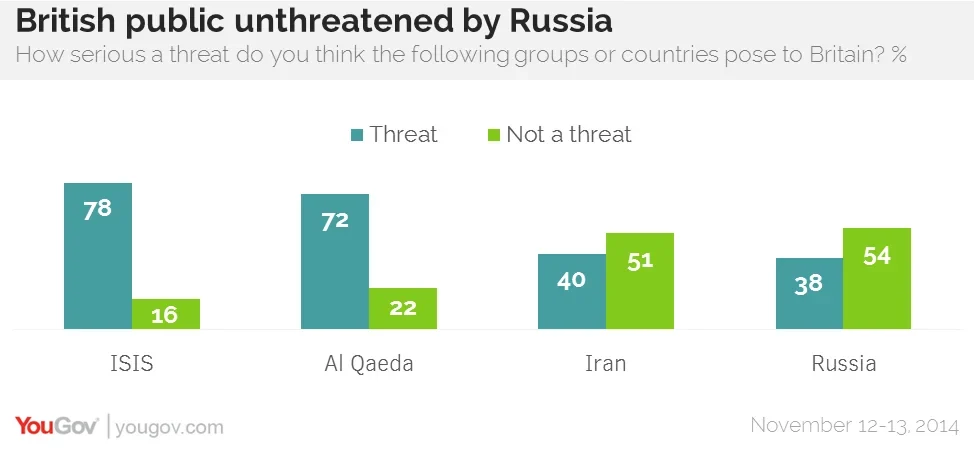Compared to threats further from home, most people do not feel threatened by heightened tensions with Russia – although most say the situation in Ukraine is a concern for Britain
Nato logged over 100 intercepts of Russian aircraft in the year to late October, three times as many as last year, and a separate study recorded 11 incidents of a more serious or aggressive nature, bringing a high risk of escalation. The incidents of higher concern include harassment of reconnaissance planes, close over-flights over warships and Russian "mock bombing raid" missions; one even involved a near-collision with a passenger plane taking off from Denmark.
Many are describing the close encounters as reminiscent of the Cold War, but new YouGov research finds that British people still feel most threatened by dangers further from home.
ISIS is perceived as posing the severest threat to Britain, with 78% feeling threatened. Even Iran, which though historically antagonistic has toned down its confrontation with the West in recent years, is seen as slightly more threatening (40%) than Russia (38%). Most people (54%), in fact, think Russia is not much of a threat.

YouGov this week has also asked whether the world has entered a new Cold War with Russia. Only 25% think it has, however in Germany people tend to find relations more fraught, tending to say a new Cold War has begun by 45-33%.
Attention has diverted somewhat from developments in Ukraine, with 46% now following the story compared to 73% when flight MH17 was shot down in July. However most people (55%) still feel the ongoing crisis in Ukraine is something that should concern Britain and the West, and many (32%) feel its response has been too weak.
Earlier this year the Russian Defence Minister said Russia was planning military bases in Cuba, Venezuela and Nicaragua. Yesterday he announced that Russian air force will begin air patrols from the Arctic Ocean to the Caribbean and the Gulf of Mexico, activity not seen since the Cold War.









